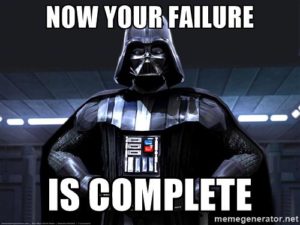I was thinking about what makes a particular author’s work recognizable to their audience. Then I thought I would take the reverse of this notion — What if you write under several different pseudonyms and don’t want them connected?
This is the issue I have to deal with. I don’t want readers of my horror books to get cross-pollinated into my romance and erotica readers. Actually, I don’t want my YA readers to stumble upon my romance and erotica!
In other words, don’t get your peanut butter on my chocolate.
Why Not?
 You may wonder why I wouldn’t want this to happen. After all, more eyeballs can mean more sales. The problem is that readers of my horror or science fiction titles go in expecting particular tropes and methodologies. Those few folks who go looking for titles under my (real) name want to read something in the “GADM” style. If they see a new book and buy it, they may get a surprise when they start reading an erotic thriller with lots of sexual tension and graphic sex instead of a horror novel with of “Dad” jokes and punny humor.
You may wonder why I wouldn’t want this to happen. After all, more eyeballs can mean more sales. The problem is that readers of my horror or science fiction titles go in expecting particular tropes and methodologies. Those few folks who go looking for titles under my (real) name want to read something in the “GADM” style. If they see a new book and buy it, they may get a surprise when they start reading an erotic thriller with lots of sexual tension and graphic sex instead of a horror novel with of “Dad” jokes and punny humor.
Indeed, I was talking to a friend on Facebook who had just received a low-star review of their novel. The reviewer was not happy that the book contained QUILTBAG/LGBT characters instead of straight old meat-and-potatoes science fiction. Of course, never mind that there are all kinds of folks from many different backgrounds in every universe, even if the author doesn’t include them in their scribblings. That didn’t matter to the reader. They saw an “other” and was unhappy, which is kind of ironic when science fiction is all about “others” from different planets.
For me, when it comes to different genres, I tend to try and keep some of them separated. Erotica and romance are separated from my westerns (except weird westerns), which are separate from my speculative fiction (horror, fantasy, and science fiction). I also have some literary floating out there in the ether. Keeping them separate helps to keep the folks who read a particular genre happy.
As far as QUILTBAG/LGBT characters, they can appear anywhere in my writing, just like the actual people do in real life. I’ll gladly take the review hit, and I’ll even be happy about it.
OK, What Can I Do?
 If you’re going to be writing under different pseudonyms, you need to do a solid analysis of your writing style. There are particular phrases and words that crop up with every author, for example. Think about the first three George Lucas Star Wars movies (in theatre release order). How many times have you heard Darth Vader say “is complete”? It drives me nuts when I hear those words, but it’s a Lucasism. Even the scripts he didn’t completely write have his smudgy thumbprints all over the pages.
If you’re going to be writing under different pseudonyms, you need to do a solid analysis of your writing style. There are particular phrases and words that crop up with every author, for example. Think about the first three George Lucas Star Wars movies (in theatre release order). How many times have you heard Darth Vader say “is complete”? It drives me nuts when I hear those words, but it’s a Lucasism. Even the scripts he didn’t completely write have his smudgy thumbprints all over the pages.
If you look back over the posts from this month on The Fictorians, there are a lot of ideas to investigate as far as your own writing is concerned. Find the pieces that fit with your style and make a list.
- Writes with lots of humor.
- Tends to use some colloquialisms.
- Writes dialogue in a short, choppy, realistic style.
- Focuses less on description.
- Plots are unpredictable with some red herrings dropped in.
Once your list is complete, you have some ideas on what not to do for your alternate identity. In fact, you can do things like focus more on descriptions and purposely read and study that subsection of writing. This way you’ll be able to improve your skills all across the board. Try adding in some humor if you’re known as a business-only author.
In fact, you can even purposely create a new pseudonym so you can write in a different area like romance or historicals. This way you can learn your craft without tainting your “real” well-established name.
